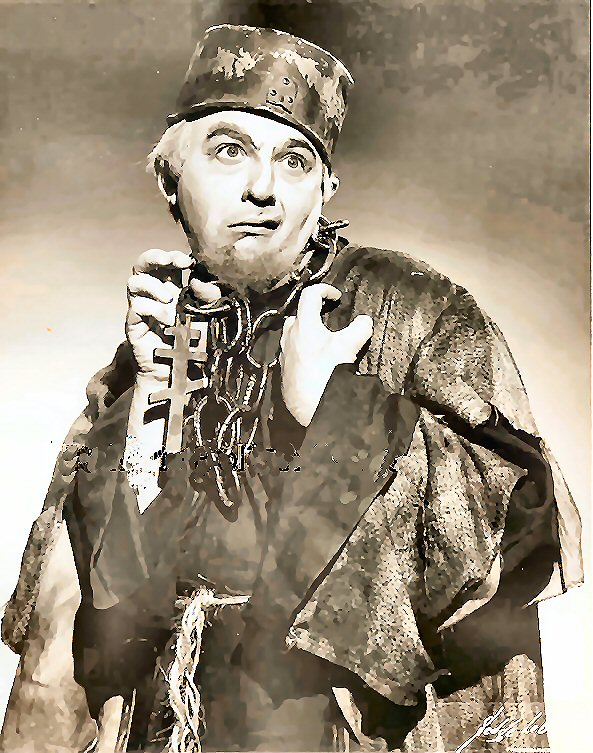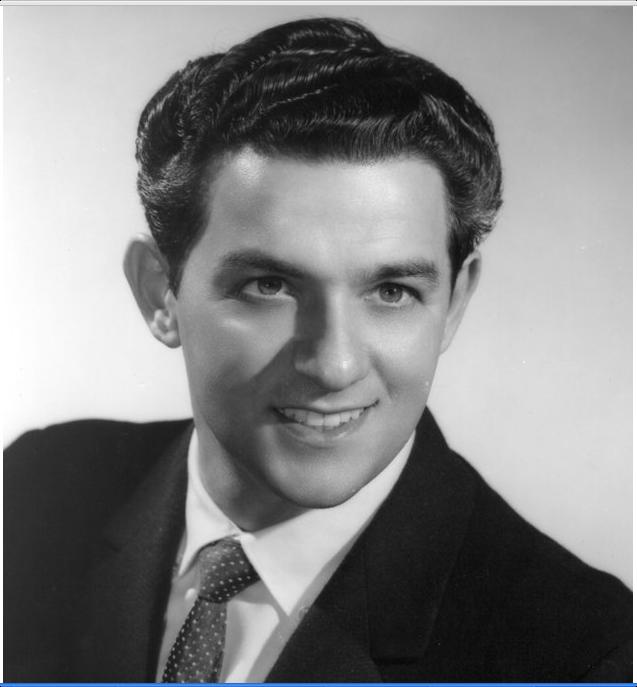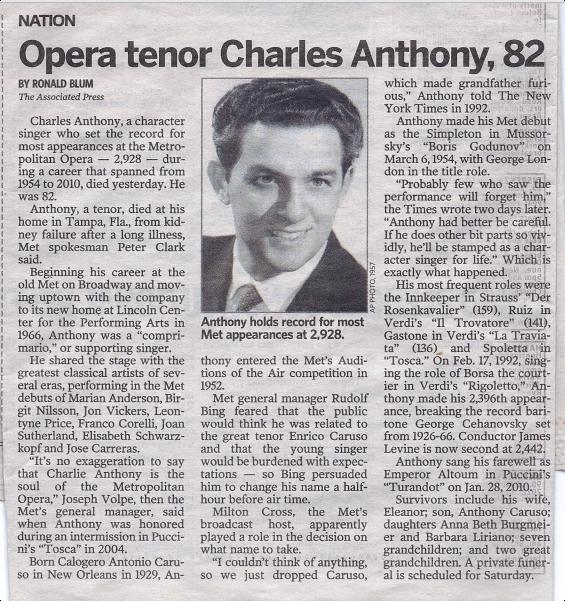Born Calogero Antonio Caruso, he was a graduate of Loyola University where he was a pupil of Dorothy Hulse. As early of the
first production of our
(New Orleans Opera) 1945/46 season one finds him listed as a member of the Opera's s chorus as Charles Caruso. In March 1947,
he made
his debut in the small role of the Messenger in Il Trovatore, and for a number of seasons, while continuing his studies,
he frequently was cast in supporting parts by the
Opera Association.
Eventually he graduated to more important assignments -- Goro in Madama Butterfly, Remendado in
Carmen,
and Don Curzio in
Le Nozze di Figaro, and was given additional opportunities to shine in some what larger roles Beppe in Pagliacci,
and the
Italian singer in Der Rosenkavalier.
In 1948 Charles Caruso won the New Orleans Opera House Auditions of the Air. Around this time, heeding advice to avoid
comparisons with
the great Neapoltan tenor of an earlier generation, he made the decision to adopt Charles Anthony as his stage name.
He was a winner of the Metropolitan Regional Auditions in 1952 and shortly afterwards, as a winner of the National Met
Auditions, he was awarded a contract and the opportunity to
study in Italy. In Spring, 1954, he returned to New York where on March 6, 1954, he made a successful Metropolitan Opera
debut as the Simpleton
in Boris Godunov.
Charles returned to New Orleans in December, 1954, to sing the leading role of Gérald in Lakmé.
In connection with those performances he was honored by a Civic Welcoming Committee, and audience members were invited
to greet
the tenor. Two seasons later he returned to the New Orleans Opera for two performances of the role of Prince Ramiro in Rossini's La cenerentola.
Meanwhile, at the Metropolitan Opera he found a niche as a character tenor, each season adding to his list of roles that
would be his mainstay in the 57 seasons during which he was a MET rooster artist.
While comprimario roles were his forte he was heard occasionally in a leading role, such as Ernesto in Don Pasquale, a
part which he sang in 1956 and in which he
was featured in the recording of that work issued by the Metropolitan Opera Record Club.
On February 17, 1992, he broke the existing record for the number of Metropolitan Opera performances, when,
in his 2,396th appearance, he passed
the record set in 1966 by Met baritone Georges Cehanovsky.
By the time of his retirement, on January 28, 2010 (as Altoum), Charles Anthony's record stood at 2,928 appearances in some 110 roles, a
record unlikely to be surpassed in the future.
But while these statistics tell a story of diligent work and artistic integrity, it is likely that Charles Anthony
will be remembered even more by friends and colleagues for his generosity of spirit - as mezzo-soprano Suzanne Mentzer
remarked - Your talent, demeanor, joy and heart will be missed, or, as Joseph Volpe, then General Manager of the Met,
saluted him during an intermission feature at the Met in 2004 -
It's no exaggeration to say that Charles Anthony is the soul of the Metropolitan Opera.
Jack Belsom


